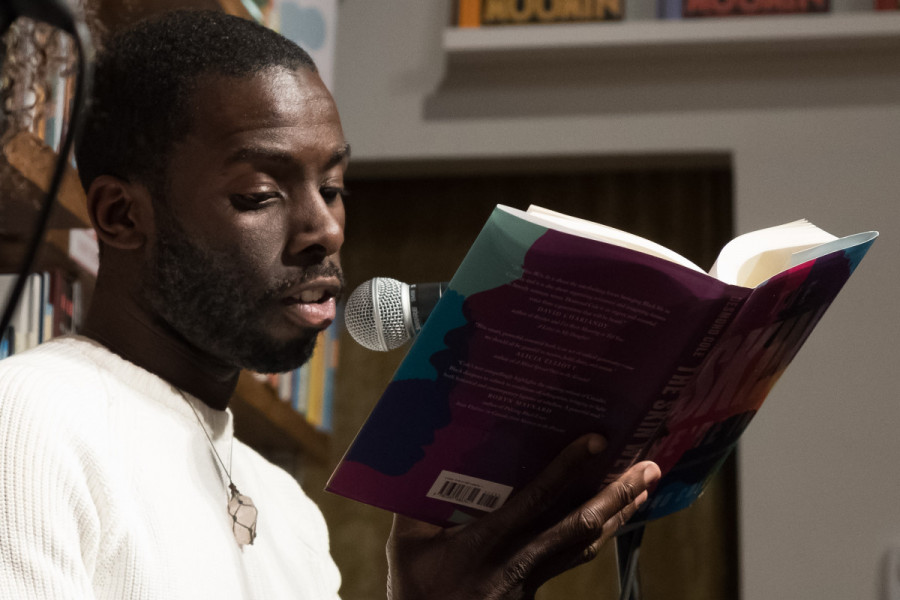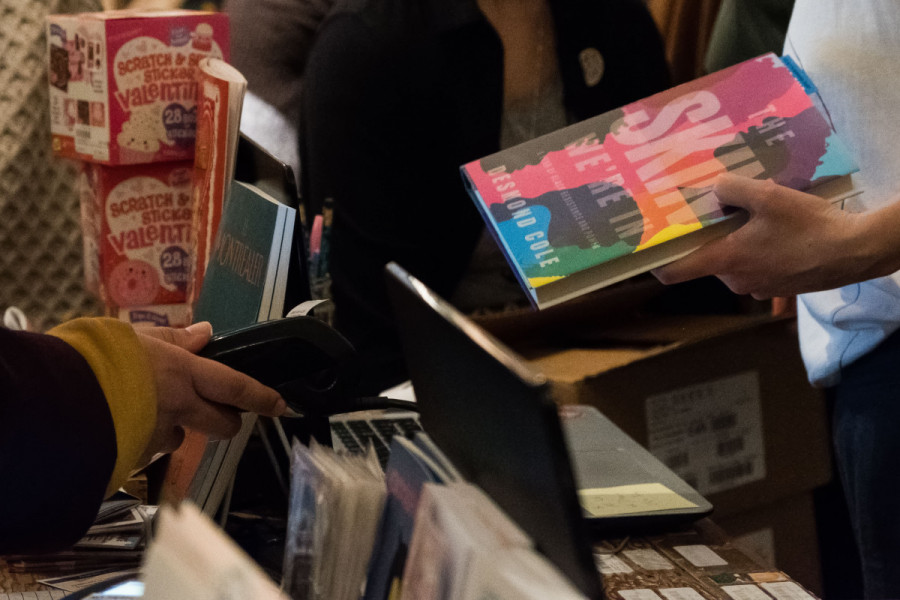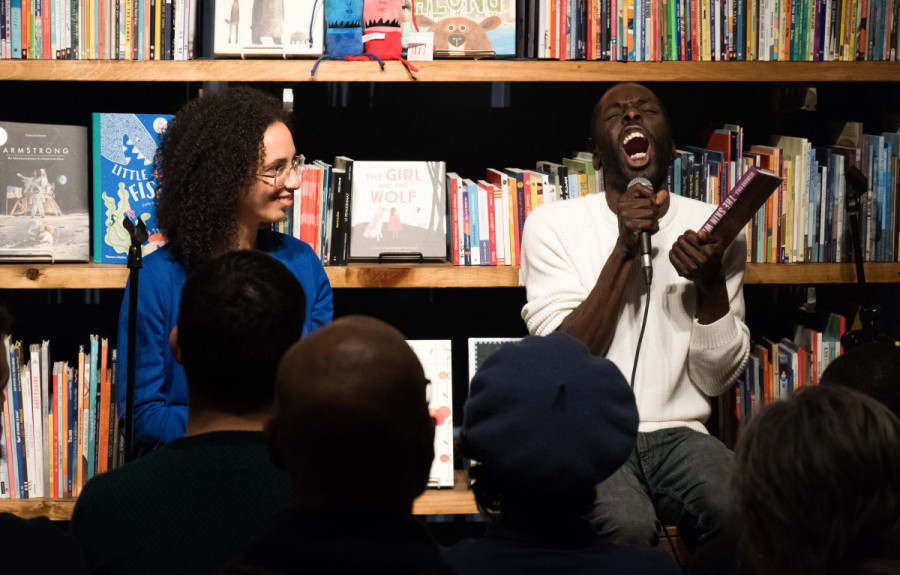Desmond Cole Launches ‘The Skin We’re in’ at D&Q
Unveiling a Scathing Investigation into Anti-Blackness in Canada
On Feb. 12, writer and journalist Desmond Cole launched his book The Skin We’re In: A Year of Black Resistance and Power at Montreal’s Drawn and Quarterly. The book is a realistic account of historical and contemporary anti-Blackness in Canada.
It was praised as “smart, powerful, and essential” by author Alicia Elliott, and novelist David Chariandy has described Cole as an “urgent and essential voice from a generation that will be heard.”
“I wrote this book as a way of confronting Canada’s legacy of anti-Blackness, as it is often undermined or not talked about at all,” said Cole at the launch. “White Canadians’ way of dealing with racial violence has always been to pretend like it doesn’t exist.”
The book details the progression of 2017. For each month, a story, feeling, or experience is recounted. In the book, Canadian racial discrimination, which is usually swept underneath the rug, is revealed in full form.
Police surveillance, police brutality, police shootings, workplace discrimination—the book serves as both an autobiographical memoir and a political commentary. It calls to readers of all races to come together and investigate Canada’s complex relationship with anti-Black racism.
“I wrote this book as a way of confronting Canada’s legacy of anti-Blackness, as it is often undermined or not talked about at all.” — Desmond Cole
During the launch, Cole was in conversation with Emilie Nicolas, a prominent Black columnist at Le Devoir.
She is also the co-founder of Québec inclusif and a PhD candidate in linguistic anthropology at the University of Toronto.
When Nicolas asked Cole what the hardest part about writing the book was, his response was the research around certain police killings—particularly that of Abdirahman Abdi, a mentally ill Black man who was ruthlessly beaten to death by Ottawa police.
“It was the hardest thing I’ve ever written,” he said. “The research, the reviewing of the 9-1-1 calls; these were places I just didn’t want to ever go. But I knew I had to do it in order to tell the story bravely.”
He also told the audience about “unnecessary difficulties” he encountered during the editing process.
RelatedWhen Cole submitted the book to be copy edited and fact-checked, the white copy editor said he didn’t remember certain incidents the way Cole described them.
Cole saw this as a form of trespassing and was deeply hurt by it. Even when writing their own stories, Black people still have to fight to have their experiences validated.
Cole, however, went onto say that there were moments of beauty in the writing process, particularly during the last chapter, when people across the country were successful in rallying for Abdoul Abdi, a young Black Somali man who faced deportation.
“The same way we relive trauma sometimes, we can also relive joy. I wanted readers to get the euphoria I experienced towards the end, when Abdoul’s deportation was cancelled,” he said.
Nicolas also asked Cole about how Canadian racism is often held up against American racism.
The comparison between the two is often used by white Canadians as a way to pretend like anti-Blackness isn’t worth being aware of in Canada, and that, since racism isn’t as bad here as it is in the U.S., Black Canadians should somehow be more appreciative of where they are.
In the book, he writes:
“This idea that Canada’s racial injustices are not as bad as they could be—this notion of slavery lite, of racism lite, of what my friend calls the ‘toy version of racism’—is a very Canadian way of saying ‘remember what we could do to you if we wanted to.’ Passive-aggressive racism is central to Canada’s national mythology and identity. White supremacy warns Black people against setting our own standards and pursuing dreams.”
At the launch, Cole emphasized that he used the novel to tackle how white supremacy functions through negation.
Particularly in Canada, that denial of racism is made effective by “contrasting ourselves with the big bad Americans,” he said.
A central message in the book is that, even in unity, Black people are allowed to disagree with each other.
He spoke about how Black people often feel like they have to seem like a unified voice in order to have their grievances taken seriously by the government, but this leads to them not having their own individual views and therefore having them turn into a monolith.
This message is conveyed by how the book is fearlessly gruesome yet unemotive. Cole writes about hideous and egregious discrimination cases in a flat tone, and this is done to present the facts in a way that feels unbiased.
Cole ended the launch by describing how the book can positively influence non-Black people.
“I did a lot of research for this book and scattered it with a lot of references,” he said.
“There are so many resources in here that you can use to educate yourself, and to help educate other non-Black Canadians who might be lacking the curiosity that’s necessary to having conversations about racism in Canada.”






